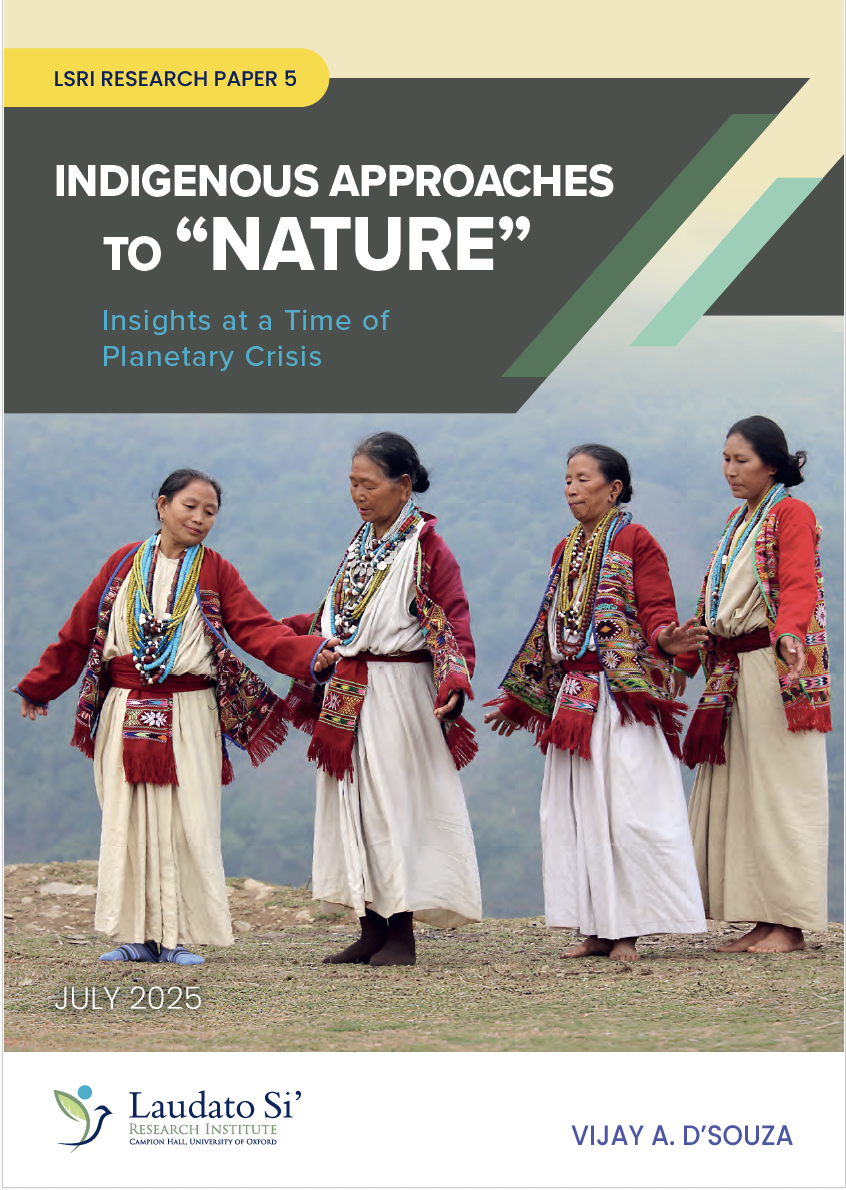Research Paper | 25th July 2025
Indigenous Approaches to Nature: Insights at a Time of Planetary Crisis
Vijay D'Souza SJ | Sustainability, Biodiversity, Environmental Ethics, Faith-based Communities, Inequality, Social Justice, Transdisciplinary Research | Asia
Description
Indigenous cultures often fall victim to oversimplified judgments, being either romanticised as pristine paradises or dismissed as “primitive” and superstitious. These extremes are perpetuated through storyselling, a mechanism by which Indigenous narratives are supplanted by externally constructed narratives that often serve colonial or neo-colonial agendas. Such narratives strip away the nuances of Indigenous people’s lived realities, especially their relationship with Nature.
A deeper inquiry into Indigenous languages, cultures, and worldviews, however, reveals greater complexity. Nature is simultaneously viewed as a life-giving, nurturing, and protective force on the one hand, and as a mighty, unpredictable, capricious, and fearsome force on the other. These attributes are personified and projected onto spirits, shaping how communities interact with forests, rivers, and mountains. Nature is not seen as inanimate; rather, it is a community of beings imbued with agency, motive, and emotion.
This Research Paper explores these layered perspectives through the languages, myths, and practices of the Aka Hrusso community of North East India. It engages with the question: is ecological thinking intrinsic to Indigenous worldviews, or is it merely by-product of a “pre-industrial” lifestyle? In answering this, the article highlights the concept of relational existence, where love, care, fear, and awe coexist as essential elements in human–Nature interactions. The restoration of this relational paradigm, which is undermined by dominant narratives through storyselling, may be among the most vital contributions Indigenous cultures offer to planetary healing and to reimagining our place within a multispecies cosmos.

Download here
(973.66 KB)

